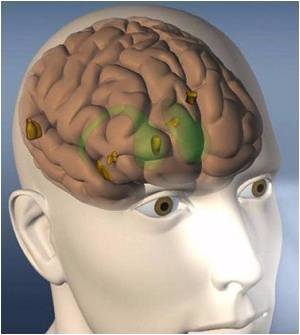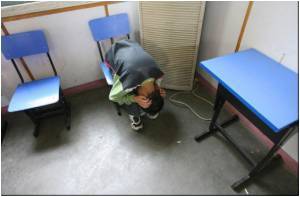Brains of people with autism concentrate more on visual detection and identification, says study.

Aiming to understand why autistic individuals have strong abilities in terms of processing visual information, the researchers collated 15 years of data that covered the ways autistic brain works when interpreting faces, objects and written words.
The data came from 26 independent brain-imaging studies that looked at a total of 357 autistic and 370 non-autistic individuals.
"Through this meta-analysis, we were able to observe that autistics exhibit more activity in the temporal and occipital regions and less activity in frontal cortex than non-autistics. The identified temporal and occipital regions are typically involved in perceiving and recognizing patterns and objects. The reported frontal areas subserve higher cognitive functions such as decision-making, cognitive control, planning and execution," said first author Fabienne Samson.
"This stronger engagement of the visual processing brain areas in autism is consistent with the well documented enhanced visuo-spatial abilities in this population," he added.
The current findings suggested a general functional reorganization of the brain in favor of perception processes - the processes by which information is recorded the brain.
These are tasks that require reasoning - for example, a research participant would be asked if a statement is true or false, or to categorize a range of objects into groups.
"The stronger engagement of the visual system, whatever the task, represents the first physiological confirmation that enhanced perceptual processing is a core feature of neural organization in this population. We now have a very strong statement about autism functioning which may be ground for cognitive accounts of autistic perception, learning, memory and reasoning."
This finding shows that the autistic brain successfully adapt by reallocating brain areas to visual perception, and offers many new lines of enquiry with regards to developmental brain plasticity and visual expertise in autistics.
The findings appear in Human Brain Mapping.
Source-ANI
 MEDINDIA
MEDINDIA




 Email
Email






